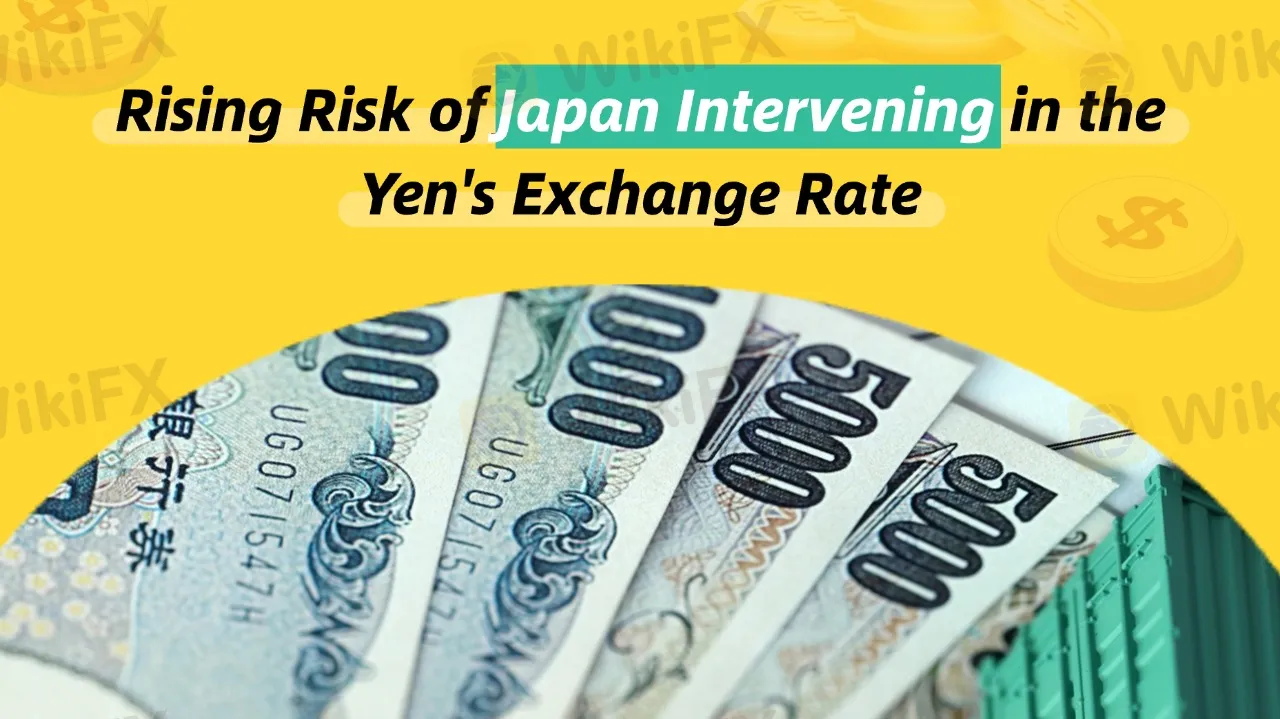简体中文
繁體中文
English
Pусский
日本語
ภาษาไทย
Tiếng Việt
Bahasa Indonesia
Español
हिन्दी
Filippiiniläinen
Français
Deutsch
Português
Türkçe
한국어
العربية
Rising Risk of Japan Intervening in the Yen's Exchange Rate
Abstract:The Japanese yen faces both internal and external pressures, with a potential intervention by the Japanese government looming.

If the yen weakens beyond the 160 level against the US dollar, it could raise concerns among Japanese authorities about the negative impact on the economy, particularly on businesses and consumers.
The yen remains weak against the US dollar, dipping to 158.55 on Wednesday and closing at 158.13 on Thursday. If strong US non-farm payroll data is released, the dollar could rise further, pushing the yen toward the psychological threshold of 160. Should it break this level, it will heighten concerns in Tokyo about the weakening yen.
Japanese Finance Minister Kato has stated that the government will take appropriate action if exchange rate volatility becomes excessive. Japan has already intervened in the foreign exchange market four times in 2024, spending nearly $100 billion to support the yen. It is widely expected that if the yen approaches 160 following the release of non-farm data, the government may issue verbal warnings or take direct intervention.

Japan's economy in 2024 is facing significant challenges due to natural disasters, domestic and international economic factors, and high inflation. The household savings rate continues to decline, reaching 1.5% in 2023, marking three consecutive years of decline. While disposable income has increased, rising prices have led to increased consumer spending. Additionally, corporate bankruptcies have surged, with 8,323 bankruptcies recorded in 2024, a 17.6% increase compared to the previous year.
Despite some positive growth in certain quarters, Japan's overall economic growth remains fragile, relying heavily on yen depreciation and short-term consumption spikes. However, consumer goods growth remains sluggish, and high inflation combined with stagnant wage growth continues to put pressure on the Japanese public.
Impact of a Strong Dollar on the Yen
If the US dollar remains strong, the yen could depreciate further, placing greater pressure on Japan's economy. A strong dollar increases the cost of imported goods, exacerbating inflationary pressures within Japan. While yen depreciation might benefit export companies, it raises living costs for domestic consumers, creating a “double-edged sword” effect.
Additionally, the weakening yen could present further challenges for the Bank of Japan's monetary policy. In the context of US interest rate hikes, if Japan maintains its loose monetary policy, the yen's depreciation may accelerate.
For investors, the future of the yen remains uncertain, especially in a scenario where the US dollar continues to strengthen, which could lead to greater depreciation of the yen. The risk of government intervention is also rising, so investors should exercise caution, closely monitor US economic data, and be aware of Japan's policy actions. Given the significant market volatility, strict risk management and flexible strategies are crucial.

Disclaimer:
The views in this article only represent the author's personal views, and do not constitute investment advice on this platform. This platform does not guarantee the accuracy, completeness and timeliness of the information in the article, and will not be liable for any loss caused by the use of or reliance on the information in the article.
Read more

CySEC issued warning over 10 Unlicensed firms
The Cyprus Securities and Exchange Commission (CySEC) has issued a warning against over 10 investment firms operating without proper authorization. These firms are not licensed to provide financial services and may pose serious risks to investors. CySEC advises the public to avoid dealing with unregulated entities

Know the Red Flags before Investing in Primarkets
Knowing the red flags of FX Broker is the most important act while you are thinking to invest your money in the Forex market and are enthusiastic about Forex trading.

Never Invest in These 5 "No License”- Scam brokers
These are scam brokers operating without licenses. Therefore, it becomes risky to trust these brokers for Forex trading. These brokers will most probably swindle your money and make you penniless. To avoid this situation, check out the list below carefully. This is the warning list issued by the Financial Conduct Authority (FCA).

Interactive Brokers Update
Interactive Brokers has introduced an exciting feature to its client portal
WikiFX Broker
Latest News
XTB Hack 2025: Major Security Breach Exposes Client Accounts
These are America's 10 weakest state economies most at risk in a recession
These are America's 10 strongest state economies best prepared for a recession
Federal Reserve quietly responds to Trump administration attacks over renovation
Tariff Windfall Drives Surprise $27 Billion US Budget Surplus In June
Top Wall Street analysts are upbeat about these dividend-paying stocks
Singapore's economy grows 4.3% in second quarter, beating expectations
What WikiFX Found When It Looked Into Emar Markets
MT4 vs MT5 Which Forex Trading Platform Fits Your Needs in 2025?
Stock futures slide on more Trump tariff letters, but are off worst levels of session: Live updates
Currency Calculator


